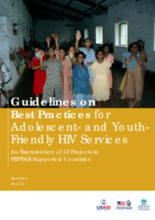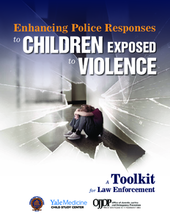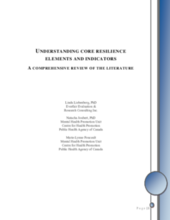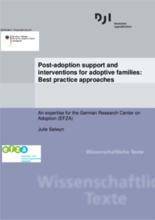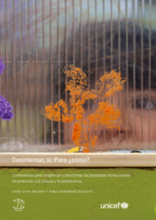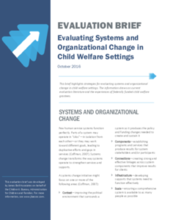This page contains documents and other resources related to children's care in the Americas. Browse resources by region, country, or category.
Displaying 391 - 400 of 566
This document examines 13 projects serving HIV services to adolescents in PEPFAR-supported countries and provides a set of guidelines on best practices for adolescent and youth-friendly HIV programs.
This new toolkit provides practical tools and resources to assist law enforcement agencies in building or enhancing effective operational responses to children exposed to violence (with or without a mental health partner). This toolkit contains tools targeted to police leaders and frontline officers.
This resource provides guidance for training professionals and parents on the Strengthening Families Protective Factor Framework.
This video from the National Child Welfare Workforce Institute explains how the state of Missouri in the US reformed its child welfare system by strengthening the social service workforce.
This rapid literature review was commissioned by the German Research Centre on Adoption (EFZA) located at the German Youth Institute in Munich (Germany). The overall aim of the review was to consider the support needs of domestic and intercountry adoptive families and the evidence for effective interventions. Step-parent, relative and domestic private adoptions were excluded.
La publicación que se presenta pretende ser un aporte en desarrollando herramientas, metodologías de trabajo, y estrategias para desinternar a niños en distintos momentos vitales. A partir de la experiencia de trabajo y la reflexión sobre su propia práctica, La Barca ordena, sistematiza y pone a disposición de todos los actores del sistema de protección a la infancia los principales aprendizajes de la tarea realizada en los últimos años.
This resource guide reflects the theme of the Office on Child Abuse and Neglect’s 20th National Conference on Child Abuse and Neglect, "Building Community, Building Hope," which was held in Washington, DC, in August 2016.
This study underscores the fact that visible minority families receiving child protective services are a far from homogeneous group and that there are a number of effective methods that can be used with them.
This brief explores challenges and strategies for evaluating systems and organizational change in US child welfare settings.


